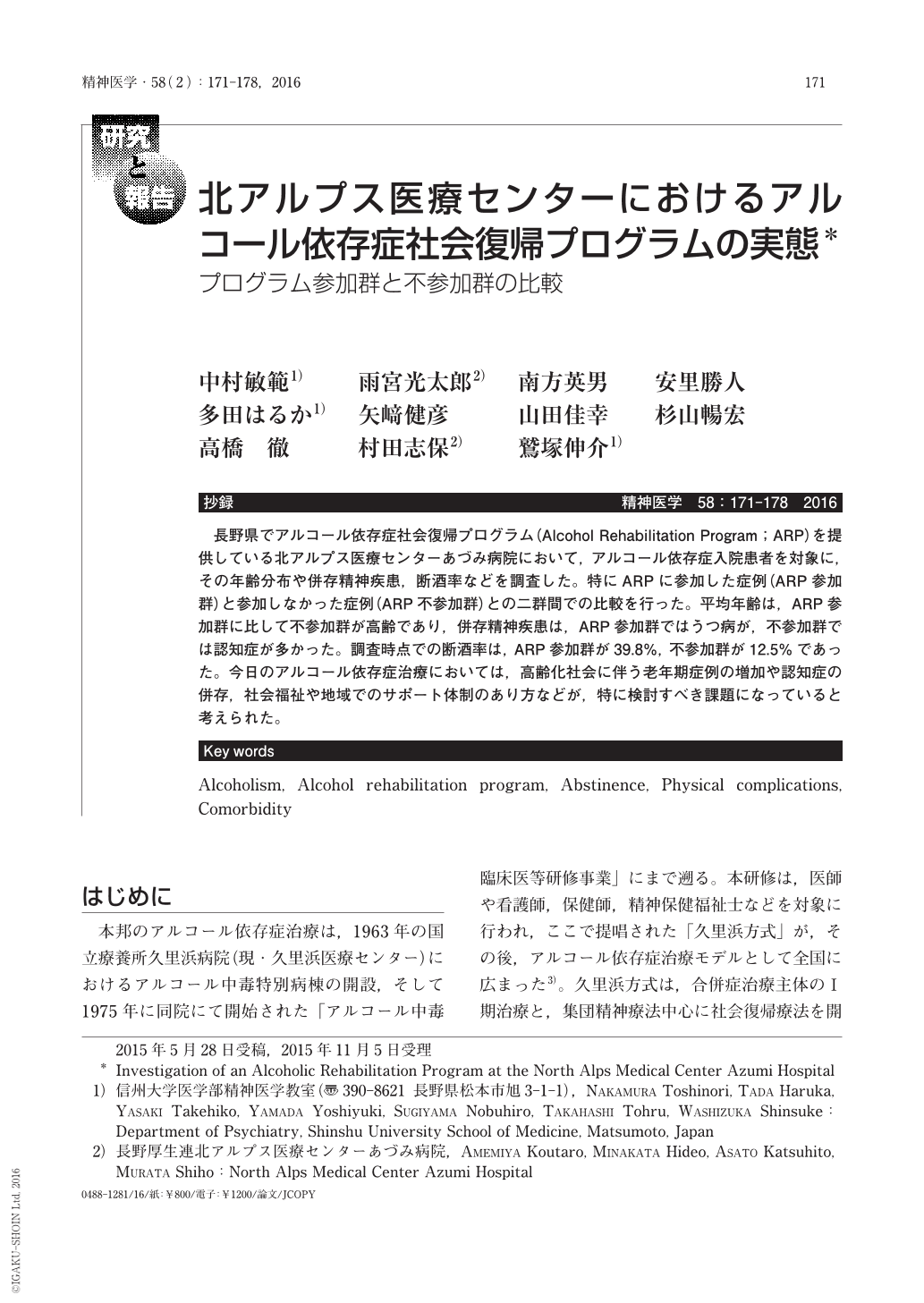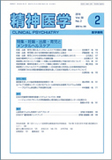Japanese
English
- 有料閲覧
- Abstract 文献概要
- 1ページ目 Look Inside
- 参考文献 Reference
抄録
長野県でアルコール依存症社会復帰プログラム(Alcohol Rehabilitation Program;ARP)を提供している北アルプス医療センターあづみ病院において,アルコール依存症入院患者を対象に,その年齢分布や併存精神疾患,断酒率などを調査した。特にARPに参加した症例(ARP参加群)と参加しなかった症例(ARP不参加群)との二群間での比較を行った。平均年齢は,ARP参加群に比して不参加群が高齢であり,併存精神疾患は,ARP参加群ではうつ病が,不参加群では認知症が多かった。調査時点での断酒率は,ARP参加群が39.8%,不参加群が12.5%であった。今日のアルコール依存症治療においては,高齢化社会に伴う老年期症例の増加や認知症の併存,社会福祉や地域でのサポート体制のあり方などが,特に検討すべき課題になっていると考えられた。
The North Alps Medical Center Azumi Hospital is one of the psychiatric hospitals in the Nagano prefecture of Japan that conducts an Alcohol Rehabilitation Program (ARP). Not only various healthcare providers, but also self-help groups work together in the ARP. The program has been gradually changing with the introduction of psychotherapy, such as cognitive behavior therapy and motivational interviewing. We conducted a survey of inpatients with alcoholism to investigate clinical data such as age distribution, coexistence of psychiatric diseases, physical complications, and abstinence rates. During the investigation period, there were 149 inpatients with alcoholism, comprising 93 ARP participants and 56 nonparticipants. This survey compared patients who participated in the ARP with nonparticipants. The main findings were as follows. (1) The average age of ARP nonparticipants was higher. (2) Several ARP participants were hospitalized for treatment of alcoholism from the beginning of treatment (planned hospitalization) and were referred to this hospital by doctors from all over the prefecture. (3) At the time of hospitalization, the prevalence of hepatic disorder was 95.7% and 80.4% in ARP participants and nonparticipants, respectively;in addition, 14.0% of participants and 12.5% of nonparticipants progressed to develop hepatic cirrhosis. (4) With regard to comorbidities associated with alcoholism, there were more patients with depression among ARP participants, and with dementia among ARP nonparticipants. (5) As of March 2014, 39.8% of the ARP participants and 12.5% of the nonparticipants were abstainers. In summary, present-day treatments for alcoholism should take into account the increase in the number of older people, comorbidity of dementia, social welfare, and support systems in the area. Moreover, individualized treatment approaches to promote the relationship between hospitals and the local community are important.

Copyright © 2016, Igaku-Shoin Ltd. All rights reserved.


